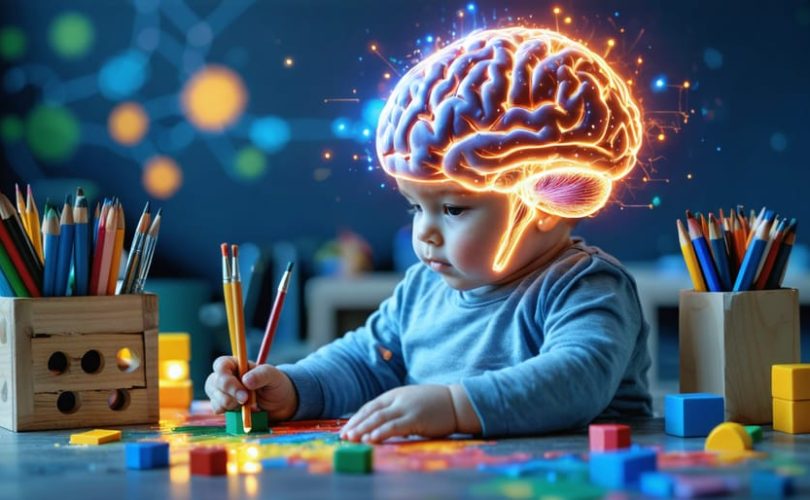Every child’s early years lay the foundation for lifelong success, making early intervention programs for children aged 0-3 critical for optimal development. These specialized support services, backed by decades of research-backed early intervention benefits, can dramatically improve outcomes for children facing developmental challenges.
When concerns arise about a child’s development – whether in speech, motor skills, social interaction, or behavior – early intervention programs provide comprehensive support through a team of specialists working directly with both children and families. These programs offer personalized therapy, parent coaching, and developmental monitoring, all within the comfort of familiar environments like home or daycare settings.
The beauty of early intervention lies in its preventive approach. By identifying and addressing challenges during these crucial first three years, when the brain is most adaptable, families can access transformative support that may reduce or eliminate the need for more intensive interventions later. For every dollar invested in early intervention, studies show society saves up to seven dollars in future educational, medical, and social services costs.
Whether you’re a parent noticing developmental differences in your child, a healthcare provider seeking resources for patients, or an educator working with young children, understanding the power of early intervention can open doors to life-changing support for families when it matters most.
Why the First Three Years Matter for Mental Health
The Science Behind Early Brain Development
The first three years of a child’s life represent a remarkable period of brain development, often called the “critical window.” During this time, your baby’s brain creates an astounding one million neural connections every second! These connections form the foundation for all future learning, behavior, and health.
Think of your child’s brain as a house under construction. The basic architecture is built through early experiences and interactions. Every time you talk, play, or comfort your baby, you’re helping to strengthen these neural pathways. Positive experiences create strong connections, while chronic stress or neglect can weaken them.
Research shows that emotions play a crucial role in this development process. When babies receive consistent, nurturing responses to their needs, their brains develop healthy stress-response systems. This emotional security becomes the blueprint for future relationships and mental well-being.
Scientists have discovered that early intervention during this period is particularly effective because the brain is at its most adaptable stage. Just like it’s easier to shape wet cement than hardened concrete, supporting healthy brain development is most impactful during these early years.

Building Emotional Foundations
The first three years of a child’s life represent a crucial window for emotional development. During this period, every interaction, response, and experience shapes how a child learns to understand and manage their feelings. Dr. Sarah Chen, a child development specialist, explains, “These early experiences literally wire the brain’s emotional circuits, creating patterns that can last a lifetime.”
When babies receive consistent, nurturing responses to their needs, they develop a sense of security and trust. This emotional foundation becomes the blueprint for future relationships and mental health. For example, when a caregiver consistently comforts a crying infant, the baby learns that their feelings matter and that they can count on others for support.
Stress and trauma during these formative years can have lasting impacts on a child’s emotional well-being. However, early intervention programs provide vital support by helping parents create positive emotional experiences and teaching them to recognize and respond to their child’s emotional needs. Through guided interactions, parents learn to strengthen their emotional bond with their child, setting the stage for healthy social-emotional development and resilient mental health outcomes.
Key Components of 0-3 Early Intervention Programs
Parent-Child Relationship Support
A cornerstone of early intervention programs is strengthening the vital bond between parents and their young children. These attachment-based interventions recognize that secure emotional connections form the foundation for healthy development in the first three years of life.
Through guided interactions and supportive coaching, parents learn to read and respond to their child’s emotional cues more effectively. Trained specialists work alongside families to develop strategies for positive engagement, whether through playful activities, soothing techniques, or daily caregiving routines.
“When parents feel more confident in understanding their baby’s needs, the whole relationship transforms,” shares Dr. Maria Chen, an early intervention specialist. “We often see dramatic improvements in both the child’s emotional regulation and the parent’s sense of competence.”
The program provides a safe space for parents to explore their own feelings about parenting while building practical skills. Activities might include floor time play sessions, mirror exercises to promote face-to-face interaction, or guided observation of the child’s communication attempts.
Parents also learn to navigate challenging behaviors with patience and understanding rather than frustration. This emotional coaching helps create a nurturing environment where children feel secure enough to explore, learn, and develop healthy attachment patterns that will benefit them throughout life.
Support is tailored to each family’s unique circumstances, cultural background, and specific challenges, ensuring interventions are both meaningful and sustainable.

Developmental Screening and Assessment
Regular developmental screening and assessment form the cornerstone of effective early intervention programs. These evaluations help identify potential developmental delays, behavioral concerns, or signs of needed mental health support in children from birth to age three.
During screening sessions, trained professionals observe your child’s behavior, social interactions, and developmental milestones through play-based activities. They’ll assess key areas including language development, motor skills, social-emotional growth, and cognitive abilities. Parents also play a crucial role by sharing observations about their child’s daily routines and behaviors.
Dr. Sarah Chen, a pediatric developmental specialist, explains: “Early screening isn’t about labeling children. It’s about understanding each child’s unique developmental journey and providing support when needed. The earlier we identify concerns, the more effective our interventions can be.”
These assessments typically occur at regular intervals – usually at 9, 18, and 24-30 months – though additional screenings may be recommended based on individual needs. The process is gentle and child-friendly, often feeling like a structured playtime rather than a formal evaluation.
If screening reveals any concerns, your healthcare team will work with you to create a personalized support plan, ensuring your child receives the right help at the right time.
Therapeutic Approaches for Infants and Toddlers
Early intervention for infants and toddlers requires gentle, age-appropriate approaches that respect each child’s unique developmental journey. These therapeutic strategies focus on creating positive experiences through play-based activities and nurturing interactions.
For infants (0-12 months), interventions often center around sensory experiences and attachment-building activities. Therapists work closely with parents to develop soothing routines, implement tummy time exercises, and encourage responsive caregiving through activities like interactive singing and gentle massage.
Toddlers (1-3 years) benefit from more structured play therapy and social interaction opportunities. Therapeutic activities might include:
– Guided imaginative play to develop emotional expression
– Movement-based activities to boost coordination and confidence
– Simple art projects that encourage self-expression
– Group activities to practice social skills
– Music therapy sessions for language development
These preventive mental health strategies are most effective when integrated into daily routines. Parents and caregivers learn to recognize their child’s cues and respond appropriately, creating a foundation of emotional security and healthy development.
Remember, every child progresses at their own pace. Therapists customize these approaches based on each child’s needs, abilities, and family circumstances, ensuring the most supportive environment for growth and healing.

Real Success Stories: Early Intervention in Action
Meet Sarah and Tommy, whose story exemplifies the transformative power of early intervention. At 18 months, Tommy wasn’t making eye contact or responding to his name, causing Sarah deep concern. Through their pediatrician’s referral to a 0-3 early intervention program, Tommy received comprehensive support that changed his developmental trajectory.
“Within six months of starting the program, Tommy was engaging with his therapists and making incredible progress,” Sarah shares. “The in-home visits made all the difference – we learned strategies to support his development during everyday activities.”
The Martinez family experienced similar success with their daughter Elena, who showed signs of speech delay at age two. Their early intervention team included a speech therapist and developmental specialist who worked collaboratively with the family.
“Elena’s transformation was remarkable,” says Maria Martinez. “The therapists taught us simple techniques to encourage communication during meals and playtime. By age three, she was speaking in full sentences and confidently interacting with other children.”
For the Williams family, early intervention provided crucial support for their twin boys born prematurely. The program connected them with physical therapists who helped address motor delays and occupational therapists who improved feeding challenges.
“The coordinated care approach meant everyone was working together toward the same goals,” explains James Williams. “The progress our boys made exceeded our expectations, and we’re grateful we didn’t wait to seek help.”
These success stories highlight a common theme: early intervention works best when families and professionals collaborate. As developmental specialist Dr. Lisa Chen notes, “The earlier we can provide support, the better the outcomes. We see children make remarkable progress when families are actively involved in the intervention process.”
Remember, every child’s journey is unique, but these stories demonstrate how early intervention can provide the foundation for lifelong success. The key is taking action when concerns arise and embracing the support available through these vital programs.
Accessing Early Intervention Services
Finding Local Programs
Finding local early intervention programs is easier than you might think. Start by contacting your state’s early intervention coordinator – every state has one. You can find your state’s coordinator through the Early Childhood Technical Assistance Center (ECTA) website or by calling 1-800-695-0285.
Your child’s pediatrician can also be an excellent resource for local program referrals. During routine check-ups, doctors often screen for developmental concerns and can connect you directly with appropriate services.
Other valuable resources include:
– Local health departments
– School districts’ special education departments
– Children’s hospitals
– Public health clinics
– Family resource centers
Many states offer online screening tools and referral systems through their Department of Health websites. You can also connect with other parents through local support groups or online communities who can share their experiences with early intervention services.
Remember that you don’t need a doctor’s referral to request an evaluation. If you have concerns about your child’s development, you can contact your local early intervention program directly to schedule an assessment. Most programs offer free developmental screenings and will help determine if your child qualifies for services.
Working with Early Intervention Specialists
Working with early intervention specialists is a collaborative journey that supports your child’s development. These professionals become valuable partners in your family’s life, offering expertise while respecting your role as your child’s primary advocate. The process typically begins with establishing strong family-professional partnerships built on trust and open communication.
During sessions, specialists will work directly with your child through play-based activities while coaching you on strategies to support development between visits. These professionals often come to your home or familiar settings where your child feels most comfortable. They’ll demonstrate techniques you can naturally incorporate into daily routines, from mealtime to bedtime.
You can expect regular progress updates and ongoing adjustments to your child’s intervention plan. Specialists will celebrate small victories with you and provide gentle guidance when challenges arise. They’ll also coordinate with other professionals involved in your child’s care, ensuring everyone works together toward shared goals.
Remember, you’re an essential part of the intervention team. Your insights about your child’s preferences, routines, and challenges help shape the most effective strategies for success.
The impact of early intervention during the crucial first three years of life cannot be overstated. Research consistently shows that children who receive timely support through 0-3 programs demonstrate improved outcomes across multiple developmental domains well into their adult years. These benefits extend far beyond early childhood, influencing academic success, social relationships, emotional well-being, and even career achievements.
Parents often share how their decision to seek early intervention changed the trajectory of their child’s life. As one mother recently noted, “I was hesitant at first, but getting help early on made all the difference for my daughter. Now she’s thriving in ways I never imagined possible.”
Remember, you don’t have to wait until you’re certain there’s a problem. If you have any concerns about your child’s development, taking action sooner rather than later is always the better choice. Early intervention programs are designed to be supportive, not judgmental, and they work collaboratively with families to create the best possible outcomes for children.
The window of opportunity during these early years is precious. Every month matters in a young child’s development, and the support available through 0-3 programs can help maximize this critical period. By reaching out today, you’re taking an important step toward securing your child’s future. Don’t hesitate to contact local early intervention services to learn more about how these programs can support your child’s unique journey of growth and development.







